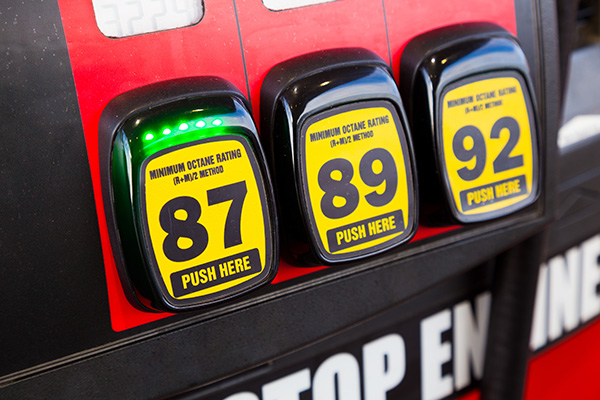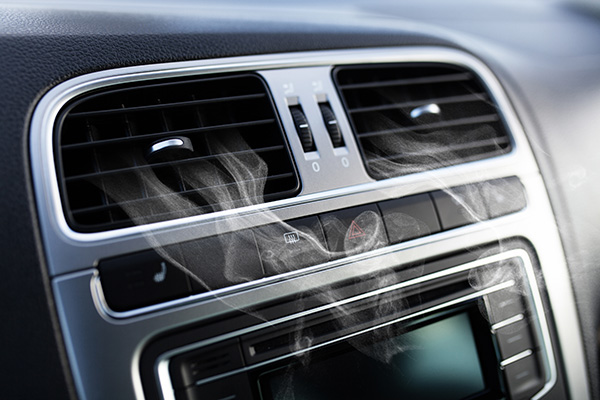Posted on 8/29/2025

Modern vehicles use advanced power steering systems to make driving smooth and responsive. When the power steering warning light turns on, it indicates that the system isn’t functioning properly. Ignoring it can make your car harder to steer, especially at low speeds, and in some cases, it can lead to complete steering failure. We see this warning light come on for issues that range from minor fluid problems to more serious component failures. Low or Leaking Power Steering Fluid In hydraulic systems, fluid is essential for creating the pressure that assists steering. If the fluid is low, steering will feel heavy and the warning light will usually illuminate. Leaks are often the cause of low fluid, and they can occur in hoses, seals, or the steering rack itself. You might notice puddles under the vehicle or hear whining noises when turning. Refilling the fluid can temporarily restore function, but the leak itself must be repaired to prevent further damage ... read more
Posted on 7/29/2025

Fatigue is one of the most underestimated dangers on the road. While most drivers are aware of the risks of distracted or impaired driving, drowsy driving doesn’t always get the attention it deserves. Yet it plays a major role in thousands of accidents every year, especially those involving long trips or late-night driving. Being too tired to drive safely can impair your judgment, slow your reaction time, and even cause you to fall asleep behind the wheel. Knowing how to recognize the signs of fatigue and what to do about them can make the difference between reaching your destination safely and putting yourself and others at serious risk. Why Fatigue Impairs Driving Driving while drowsy affects your brain much like alcohol. It reduces your ability to pay attention, slows your reflexes, and makes you more likely to make mistakes. Studies show that staying awake for 18 hours straight can have the same impact on your driving ability as a blood alcohol level of ... read more
Posted on 6/27/2025

It’s easy to take the lights on the rear of your car for granted until something goes wrong. Whether you’re replacing a bulb or trying to understand why another driver couldn’t see your car, knowing the difference between brake lights and taillights is more important than you might think. These two lighting systems may appear similar, but they serve distinct purposes and function in different ways. Let’s explore how each works and why both are critical for safe driving. Car Taillights Taillights are the red lights on the back of your vehicle that come on automatically when you turn on your headlights or activate your parking lights. Their purpose is to make your vehicle visible to others in low-light or nighttime conditions. The lights glow steadily and are designed to prevent rear-end collisions by signaling the presence of your car on the road, especially in fog, rain, or darkness. In most vehicles, taillights are part of a larger housing t ... read more
Posted on 5/30/2025

If you’ve spent any time driving in Texas, you’ve probably noticed fuel prices that seem a bit easier on your wallet compared to other states. It’s not your imagination because fuel prices in Texas consistently trend lower than the national average. But why is that the case? Several factors contribute to the relatively affordable gas prices in Texas, from its position in the energy industry to tax policies and supply logistics. Here’s a closer look at why Texas drivers often enjoy some of the lowest prices at the pump. Texas Has a Strong Oil and Gas Industry Texas is the largest oil-producing state in the U.S., generating more crude oil than any other region in the country. The state is home to numerous oil fields, including the massive Permian Basin, and a high concentration of refineries along the Gulf Coast. With so much oil being produced and processed locally, the state is well-positioned to supply fuel without relying heavily on import ... read more
Posted on 4/28/2025

When something smells off in your car, it might be more than just a forgotten lunch bag or a spill from the kids’ soccer practice. Strange odors can be your car’s way of letting you know something mechanical isn’t right. Some smells are minor and go away quickly—but others could be early warning signs of issues that need attention before they get worse. Let’s look at a few common automotive odors, what they might mean, and when it’s time to have them checked out. Burning Oil Smell A strong, acrid smell—especially after your engine has warmed up—could be burning oil. This often means oil is leaking onto hot engine parts, like the exhaust manifold. It might come from a worn valve cover gasket, a cracked oil pan, or an improperly tightened drain plug. In many cases, you won’t see visible smoke, but you’ll notice the odor inside the cabin or near the hood. If left unresolved, this can lead to oil loss, low oil ... read more